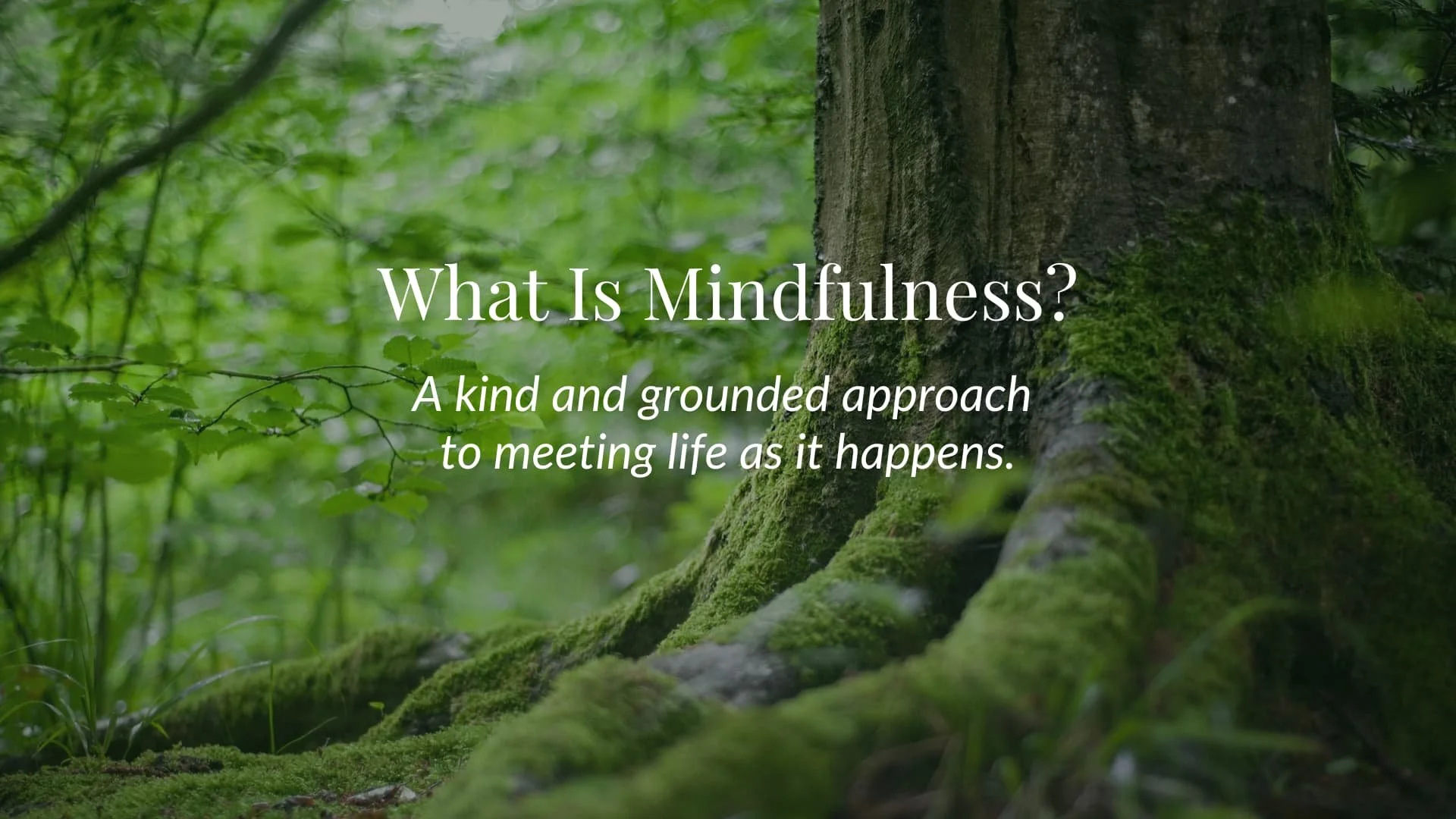Mindfulness in simple terms
Welcome - Here you find short and clear information about mindfulness, its benefits and how it can enhance wellbeing and emotional health in daily life.
Mindfulness invites us to pay attention with curiosity and kindness to what’s happening right now—without judging or changing it. It’s a mind-body approach rooted in meditation, offering a way to connect with each moment and bring care to our responses to stress, thoughts, and emotions.
Mindfulness is not about clearing your mind or becoming someone else. It’s about noticing what’s here — thoughts, feelings, sensations — and meeting them with awareness. Over time, this can help us feel calmer, less reactive, and more connected to ourselves and others.
How Mindfulness Can Help
Research shows mindfulness supports stress relief, sleep, concentration, and emotional well-being.
Opens space between reacting and choosing
Helps the mind settle from overthinking or anxiety
Builds self-acceptance, calm, and connection to others
Encourages more conscious, kind patterns of responding
Benefits of Mindfulness
More self-compassion
Greater empathy
Living with pain differently
Sharper focus
Better sleep
Less stress
Reduced anxiety
Improved mood
Calmer responses
Evidence-Based Support
The effectiveness of mindfulness is backed by a growing body of research—from neuroscience, psychology, medicine, and behavioural studies. Communities, hospitals, education, and even workplaces are adopting mindfulness based on strong evidence. (Source: bemindful.co.uk)
-
Mindfulness is strongly supported by research. Studies show it can reduce stress and anxiety, improve sleep and mood, and even change how we respond to pain. Clinical trials and neuroscience studies confirm its positive effects on the brain, body, and relationships. Mindfulness is now used widely in healthcare, education, and workplaces as a practical way to support wellbeing.
-
Mindfulness-Based Stress Reduction (MBSR) is one of the most established mindfulness programmes, developed in the 1980s at the University of Massachusetts by Jon Kabat-Zinn and his colleagues. It was originally created to support people with chronic stress and health difficulties. Today, MBSR is offered worldwide, helping people manage stress, anxiety, depression, and chronic pain through structured classes and home practice.
-
Beyond clinical settings, mindfulness is now taught in schools, universities, workplaces, government, and even prisons. Its growth reflects both strong scientific evidence and the simple truth that being more present and compassionate helps in every part of life. Whether in everyday routines, during challenges, or in times of transition, mindfulness offers skills to meet life with steadiness and care.
Whether you’re taking your first mindful breath or returning to practice, mindfulness supports a more mindful way of being—rooted, responsive, and alive to each unfolding moment.
Mindfulness is best understood in practice, not theory. You’re warmly welcome to explore it with me through a weekly meditation group or course.”


